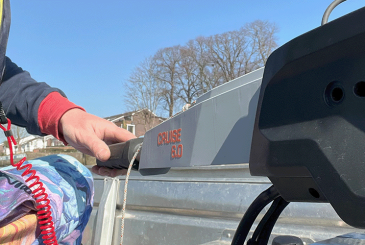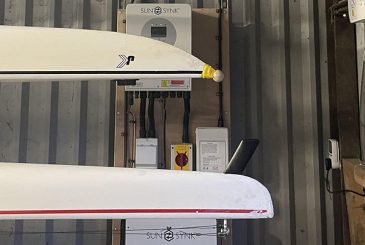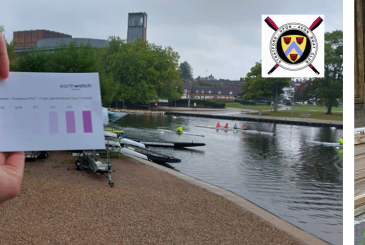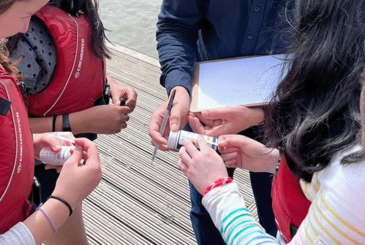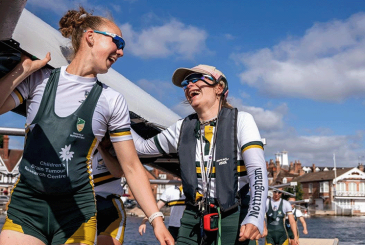From deciding whether to make the role freelance or employed and dealing with contracts to selection criteria and performance management, taking on paid coaches needs considerable management. Lebby Eyres talks to three clubs to find out their tips
Until quite recently, most community rowing clubs have relied on the benevolence of volunteers to coach their club squads.
Now times are changing, and clubs are increasingly recruiting full or part time paid coaching staff, and while reasons vary, it’s often less about winning medals and more about promoting continuity.
Hilary Cook, captain elect at Mortlake Anglian and Alpha BC, “We are moving into an increasingly professional world and paid coaches have become the norm.”
But what is the best practice? This article draws together the experience of clubs who have paid coaches or are in the process of recruiting them.
Decide what you need and why
Once the decision has been made to recruit a paid coach, decide what sort of coaching you’re looking for, which squads they’ll coach, and on what terms.
Helen Turnell, chairperson at Henley RC, says, “This is the first season we have decided to look at paid coaching. Our coaches have been voluntary, but it’s becoming hard to find them.
“We’re recruiting for the Junior Men’s Squad Coach and a Masters Squad Coach, as that is where the need is. We sat down with our head coaches and came up with a job description, which for the junior coach includes administration as well as session coaching.”
Matt Pooley, captain at the Lea RC, says when drawing up your person specification, consider your club’s specific needs: “Not everyone needs a big-name coach running a performance programme. At the Lea, we needed boots on the ground, following junior doubles, making sure they don’t crash into barges.”
Likewise, decide whether you need someone with coaching qualifications, and if so what level, and whether they need specific skills like driving a launch or trailer.
Writing the job ad
Once you’ve firmed up the job title and spec, it can be a good idea to seek advice on how to word it.
Turnell turned to club members with HR skills, but says, “If we hadn’t had those skills at the club, we would have asked for advice externally.”
Cook adds, “For our Head Coach vacancy, I enlisted the help of a coach from another club, who worked in the City. He advised me on what to write.”
The selection process
Once you have a variety of applicants – and be mindful it’s a competitive field – create a shortlist. Involve your club welfare officer can advise on the safer recruitment of coaches. Information about this is available in British Rowing’s Safeguarding Handbook 1.
Cook says, “Our initial applications went to the then captain, who interviewed them on the phone. We then formally interviewed two excellent candidates, both of whom came via the advert, not word of mouth.”
Pooley says, “Even though we’ve ended up recruiting people who are already club members, we go through a formal interview process with everyone.”
At Henley RC, as well as interviewing candidates in a panel format, Turnell says, “Candidates coached a session from the towpath and were given a focus. They could choose what drills etc to do. Then afterwards they did video analysis of the session.”
Making the final decision
Depending on how the club is set up and who you’re recruiting, a few key people will decide on the right candidate together, be it Club Captain, Chairperson, head coaches or Director of Rowing, if there is one.
At Henley, Turnell says, “We have a group set up to recruit, and they make the final decision.”
Cook adds, “After the formal interview, I made the decision along with the head of the senior squad and the head volunteer coach. I wouldn’t have pushed a decision against their wishes, and wanted their input from the beginning.”
Formalising the arrangement
If coaches are directly employed, then clubs should draw up a contract of employment, but even if they are not employees, a written agreement between the two parties is essential. A freelance or independent contractor’s contract can cover nature of the work, hours, fees, expenses and termination period.
British Rowing’s People Development Guide provides guidance on developing volunteers and coaches in your club and includes a specific section on Employing Coaches.
Cook says, “One of our former members ran a recruitment agency drafted this and helped us set it up to make sure we were on the right side of self-employment law.”
At Henley RC, Turnell says, “We have a contractor’s contract which a new paid coach or anyone whose services we use will have to sign.”
If coaches are employed, clubs should be aware of their obligations. Pooley says, “When the law changed, people who were earning a certain amount had to be auto-enrolled onto pensions. We had to identify a scheme and tell people we were going to enrol them unless they told us not to.”
He advises anyone starting on recruitment process that it could be worth getting professional advice and drawing up a standard contract from the get-go. British Rowing affiliated clubs can access the free British Rowing legal helpline powered by Irwin Mitchell, which includes employment matters.
Line management
Finally, once the coach has been selected and recruited, the paid coach will need a line manager and a clear idea of club objectives.
At the Lea RC, all coaches, paid or voluntary, have a line manager. “You need someone who will consistently be there who is named.”
He adds, “As lovely as it would be to apply the corporate world’s performance indicators, we are still a community club. We’re not paying executive salaries. Rather than worry about the number of medals a coach is bringing in, our aim is to build a system that over time will consistently produce results.”
Meanwhile, at Henley RC, Turnell says, “The coach will be line managed by the head coach of the relevant squad and we will set performance criteria.”
Photo: Hilary Cook
What do YOU want to read about on British Rowing Plus?
What do you find interesting here on British Rowing Plus that you’d like more of? What haven’t we covered yet that you’d like to read about?
Let us know by emailing [email protected]



